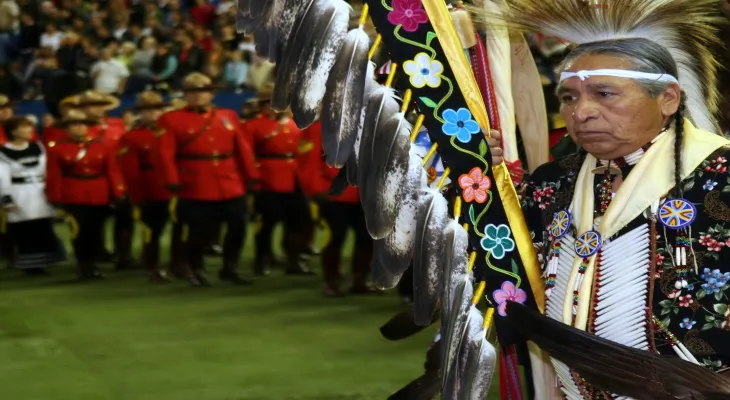Search here
Newspaper
Search here

Arab Canada News
News

Published: August 9, 2021
Agencies:
Montreal hosted the 31st edition of the International Indigenous Film Festival from August 3 to 11.
The festival showcased about 60 films from New Zealand to Canada, passing through South America, addressing Indigenous culture and depicting their reality around the world.
The festival awarded 11 films during the award ceremony held yesterday Sunday in Montreal.
Many directors shone at the International Indigenous Film Festival, including the director from the Mohawk Nation, Roxanne Whitepine, for her documentary film titled "The Haudenosaunee Canoe Journey."
The film tells the story of a person from the Onondaga Nation of Indigenous people who embarks on a journey with his daughter along the waterways that connect the members of the Iroquois Nation with each other.
"I love to see more of our work in popular media" where budgets and productions are more significant, said director Roxanne Whitepine.
Director Maya Da-Ren received an award for the fiction film titled "A Febre", which tells the story of an Indigenous person from the Tukano Nation in Brazil who moved to reside and work in a coastal city.
The film "A Última Florista" by Brazilian director Luis Polonizy won the Tiyokán artistic award.
The film narrates the story of the Yanomami Nation, whose lands have been entered since 2019 by a large number of gold seekers on the border between Brazil and Venezuela.
The jury awarded the Best Cinematographic Management prize to Colombian Vivian Gomez Echeverri for her film "Entre Fuego y Agua", which tells the story of the only black youth in the Kilksenga Indigenous community in Colombia.
The social award Rigoberta Menchú was granted to two documentaries, one by director Carol Konok, for her documentary that portrays the physical and psychological courage of the Iroquois Nation through the story of an Inuit woman who suffered from the scourge of hunger in the Igloolik community in Nunavut territory.
The festival awarded the grand prize to the documentary film "Que les pase a las abejas", which narrates the opposition of the Maya tribes in Mexico against Monsanto Company and genetically modified soy cultivation, which destroys millions of bees.
The film calls for developing a sustainable model for beekeeping rooted in the culture of these tribes.
Director Kim Obosawin from the Abenaki Nation won the APTN Indigenous Television Network award for her documentary film "Josephine Bacon", through which viewers get to know the places that shaped her past and discover a generation that quietly left their homeland.
Peruvian director Roberto de la Puente won the Best Documentary Film award, and the festival praised the works of New Zealand director Jeremiah Touamiti.
The festival also praised the film by director Alexandra Lazarovich from the Cree Nation of Indigenous peoples and filmmakers Craig Komenda and Amanda Rawa from the Anishinaabe Nation of Indigenous peoples.
Comments